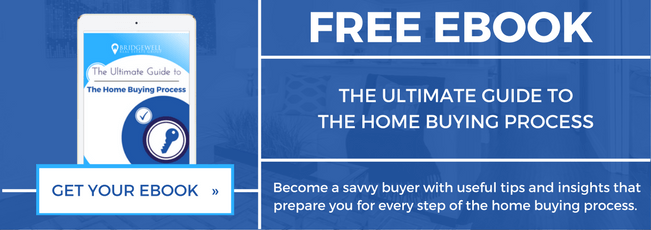Selling Your First Home and Buying Your Second
Things to consider as a first time home seller
Firsts are always an exciting experience, but without the proper guidance they can also be overwhelming and stressful.
Selling your first home and buying your second is no exception to this – so we’ve written a blog on everything you need to know about how to prepare for selling your first home and buying your second.
We go through what to consider when selling and buying at the same time, as well as tips that can help you stay informed, save money & reduce anxiety during both the selling and buying process!
Read on for everything you need to know about selling your first home and buying your second home!
SELLING YOUR FIRST HOME – What to consider
—
Should you buy or sell first?
This time around when buying you’ll also need to sell your first home. One of the biggest questions that comes up when buying and selling your home at the same time is whether you should sell or buy first. The answer to the question of buying or selling first largely depends on the type of property and market that you’re selling or buying in to.
Selling your home first
The benefit of selling first is that you know exactly how much you’ve sold for and will therefore have the exact price and dates to work off of when trying to line up your purchase. Additionally, if you have alternative accommodation (parents, family/friends) and can live there if your home sells before you find something new, then selling first may be the better option. Keep in mind that if you sell first, it’s best to choose a longer closing date – 60-90 days or more – to give you time to find and purchase your next home.
Buying your home first
One of the great things about buying first is that you can take your time looking for your dream home without feeling rushed because you’ve already sold your current home. With that being said, be aware of the risk that you may have to carry both mortgages if you current home doesn’t sell in time.
It is possible that when you buy first that the seller will accept a “subject to sale,” which means that the purchase of your new home is conditional to you selling your current home. However, negotiating for a conditional offer could mean that you have to pay a bit of a premium when it comes to purchase price. Furthermore, if the seller of your new home receives another offer without a subject to sale then they can invoke a time clause which puts you under the gun to remove your subject to sale within a shortened period of time. For that reason, many real estate agents suggest that you sell your first home before you purchase your second.
Suggested Next Step: Speak with a real estate professional for an analysis of whether buying or selling first would be best for you.
Ultimately, working closely with a realtor and a mortgage broker to assess your goals, the risks, and the market for both your sale & purchase will be your best resource for determining whether you should sell or buy first.
You’ll need to try to coordinate closing & possession dates
One of the biggest tricks when it comes to selling and buying at the same time is lining up completion and possession dates. It’s important that you work with a realtor that deals with move-up buyers often to ensure they are experienced in this lining up dates. Ideally, you’ll want to try to coordinate your completion and possession dates so that you don’t need to move more than once.
Oftentimes, the completion for the sale happens BEFORE the purchase as the money from the sale must go towards funding your new home. However, a strong recommendation we make to our clients is to see if you qualify for bridge financing, which means that the lender will “bridge” the funds if the completion for your purchase comes before your sale. Bridge financing allows clients to move in to their new home well before they move out of their current home.
One of the reasons it may be a good idea to arrange a closing date for your new home that’s a few days (or even a week) earlier is so that you can slowly move from your current home to your new home. Without this option, it is likely you’ll be moving in and out all within a 24-48 hour period which can be very stressful.
There are additional costs to bridge financing and not everyone is eligible, but it may be something to talk to a mortgage specialist about to make your move a bit smoother.
What do you need to do now to be ready to sell your current home?
Most clients selling their first home and buying their second are considered “move up buyers,” which means they are buying something bigger. (and usually more expensive!) For that reason, you’ll want to get the best return on investment when you sell your home, and in order to that you’ll want the interior (& exterior) to look its best.
Preparing your home for sale is not as easy as you may think! You’ll need to de-clutter, choose your realtor, get professional photography & floor plans done, and potentially landscape, stage, and/or make repairs.
We’ve had more than a few move-up Buyers fall in love with their new home out of the blue. If you start to prepare your current home now, you’ll be able to jump on those opportunities right away!
Have a read of our guide 30 Days to Preparing Your Home for Sale and get started.
BUYING YOUR SECOND HOME – What to consider
—
Don’t forget about your deposit money
A number of first time home sellers make the mistake of thinking that the deposit money that is put down on their sale will go directly to them, and that they can use that money for their purchase deposit – this is NOT the case.
When buying a home, you’ll need to make sure that you have enough liquid funds for a deposit available. This amount is typically 5% of the purchase price of your new home, and is usually due within 24 hours of subject removal by form of bank draft.
For a reminder on deposits, check out our blog: Deposits in Real Estate 101
Get pre-approved for your new mortgage first
Regardless of whether you’re thinking about buying or selling first, we recommend that you talk to a mortgage specialist and get pre-approved for your purchase. There may have been changes to your financial situation or mortgage lending rules since you last bought, so it’s important to know how much you can afford before getting too attached to something you may not be able to afford. Set your price range first!
It’s a great idea to meet with a realtor BEFORE you do this, as the mortgage broker will want to factor in your estimated selling price of your current home in order to determine your affordability for your new home. Obtaining a market evaluation from a realtor will allow your mortgage broker the ability to provide you with a more accurate representation of your affordability.
Be aware of all the costs involved in buying and selling
When it comes to buying your next home, you won’t be able to take advantage of first time home benefits that you may have been eligible for the first time around. You’ll need to be prepared to cover items like: property transfer tax, lawyer fees, inspection, appraisal, move in fees, mortgage insurance (if high ratio), and potential others.
While you don’t pay commission when you buy your next home, you will be responsible for commissions when you sell. You’ll want to know how much the commission and all closing costs involved in buying and selling are so you can budget accordingly.
Suggested Next Step: Speak to a mortgage specialist to understand the costs involved in buying and selling
Ask: How big of a move-up should you make?
After taking in to consideration all costs, you’ll want to determine how big of a move-up you should make. Assess your budget, space needed, minimum number of bedrooms/bathrooms necessary, and locations you’d be open to.
You’ll also want to ask yourself how your life has changed since you first bought and how you anticipate it will change moving forward. Do you plan on being in your new home 3, 5, 10 or 20 years?
Depending on your age and family situation, you’ll likely need to think about things you didn’t have to consider the last time you bought a home. Should you consider getting a house with a suite for aging parents? Do you want to be in a certain catchment area for schools?
Think about what kind of homeowner you are
You’ve got some home ownership under your belt already – so it’s time to be honest with yourself and ask whether you’re really OK with a maintenance or if you need something newer/turn-key ready.
It’s OK if you don’t like too much responsibility – buying a new (or newly renovated) strata property with a caretaker might be a better option for you. If you hate gardening, why buy another house with a big yard?
If you feel like you’re looking for more responsibility, then maybe you want to get adventurous and take on a fixer upper or a big yard!
Take a step back and assess your wants and needs, and determine what type of home would be best for you/your family and your situation & future!
Selling and buying at the same time doesn’t have to be stressful
Moving has many challenges but keeping these tips in mind as you start to consider it can help make your move into that new home as simple and stress-free as possible.
A good team of professionals around you is what is most imperative to the selling and buying process being as easy as possible! Most importantly, you’ll want a realtor and a mortgage broker to get the ball rolling.
To start the selling and buying process, you’ll want to get a market evaluation of your property.
—–
Looking to buyer or sell real estate in the Greater Vancouver and Fraser Valley areas? Start a conversation with a realtor from Bridgewell Group by calling or texting 604-319-2020 or email [email protected] to talk to a realtor about buying or selling in the Greater Vancouver area today.





